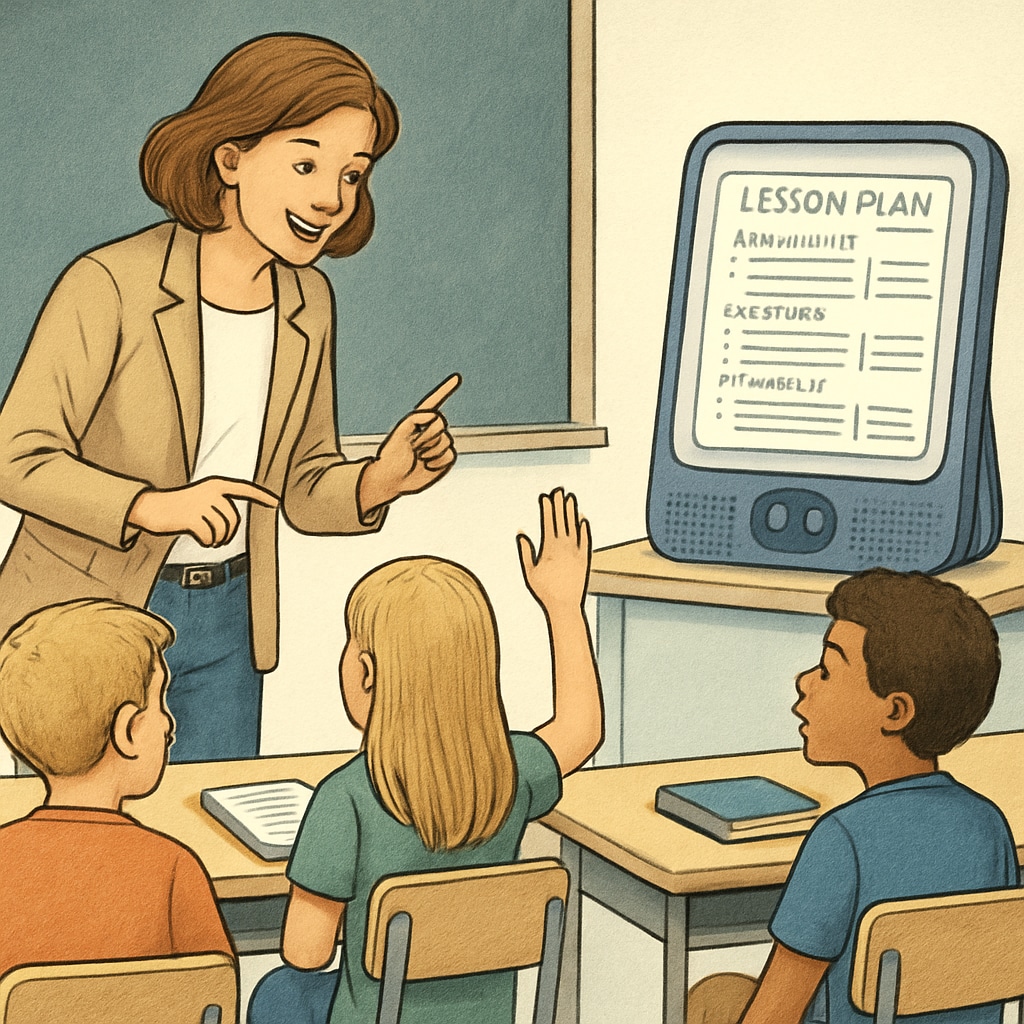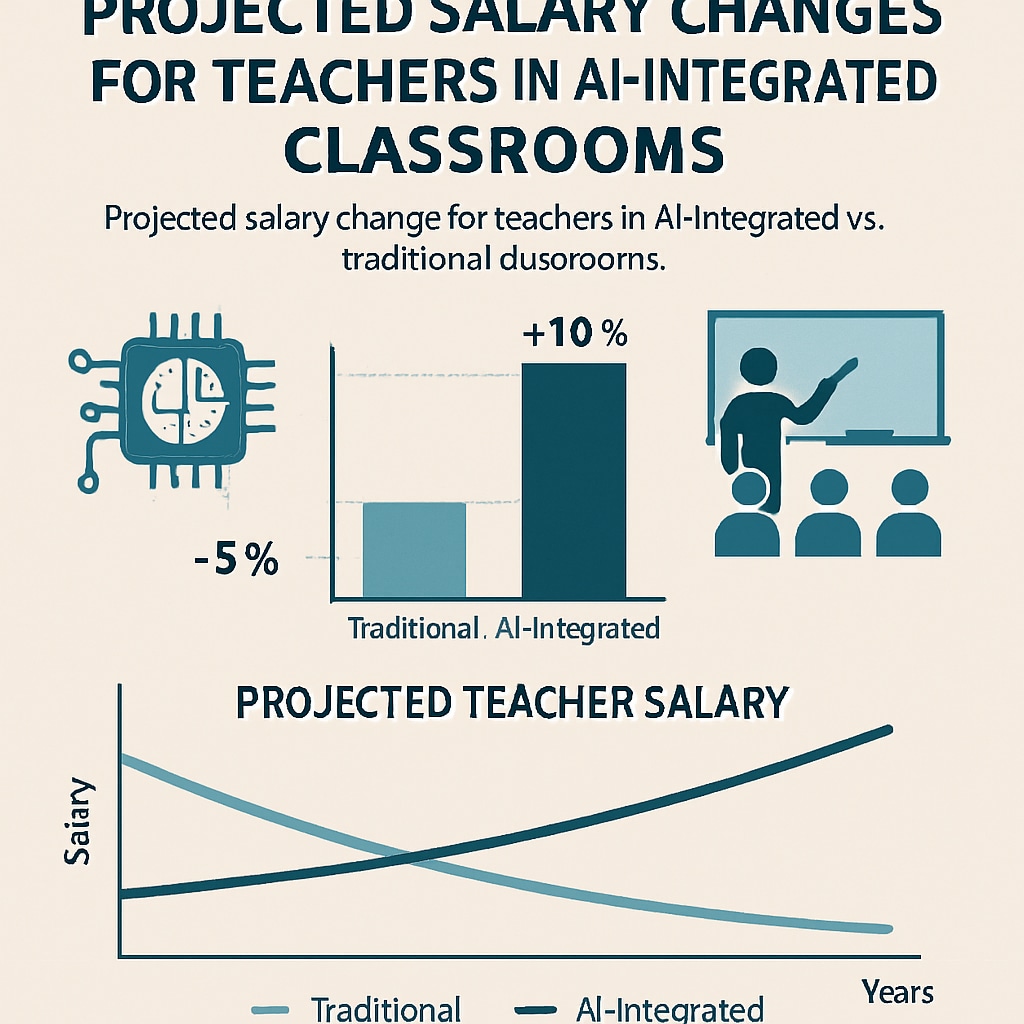The emergence of artificial intelligence (AI) tools like Google Gemini has transformed the educational landscape, raising critical questions about teacher value, compensation, and the future of the teaching profession. With AI completing tasks in minutes that once took educators hours, the role of teachers is being redefined. Are we prepared for this paradigm shift in education?
AI’s Disruptive Influence on Teaching Roles
AI’s ability to automate routine tasks, such as grading assignments, creating lesson plans, and even delivering personalized learning experiences, is undoubtedly a game-changer. For instance, AI-powered platforms like Khan Academy’s integration with GPT-4 have demonstrated how technology can adapt to individual student needs, often with greater efficiency than humans. While this promises to enhance learning outcomes, it also poses a significant threat to traditional teaching roles.
The question arises: if AI can handle these tasks, what unique value do teachers bring to the table? The answer lies in areas where human connection, empathy, and mentorship are irreplaceable. Teachers are not merely content deliverers; they are counselors, motivators, and role models—qualities that AI cannot replicate. However, this shift requires teachers to focus on developing softer skills and pedagogical strategies that emphasize emotional intelligence and creativity.

Redefining Compensation in an AI-Integrated Classroom
One of the most pressing issues is how AI will influence teacher compensation. Traditionally, salaries have been tied to experience, qualifications, and the responsibilities associated with managing a classroom. However, as AI takes over significant portions of administrative and instructional duties, the criteria for determining pay may require reevaluation.
For example, teachers who adapt to using AI effectively and contribute to its integration into the curriculum may command higher salaries. On the other hand, those resistant to change may find themselves at a disadvantage. Additionally, as AI tools become more prevalent, schools might allocate resources differently, potentially shifting funds away from traditional salaries toward technological investments.
It’s worth considering whether the education system is prepared for such changes. A report by McKinsey & Company highlighted that while AI could boost productivity, it also risks widening pay gaps if proper policies are not implemented. Policymakers must address these disparities to ensure that teachers are fairly compensated for their evolving roles.

Preparing Teachers for the AI Era
To thrive in an AI-driven educational environment, teachers must acquire new skills. Professional development programs must focus on:
- Training educators to use AI tools effectively.
- Developing interpersonal and mentoring skills that AI cannot replicate.
- Understanding data analytics to interpret AI-generated insights.
Governments and educational institutions should prioritize these training initiatives. For example, Finland has already implemented AI literacy programs for teachers, aiming to integrate technology seamlessly into classrooms. Other countries must follow suit to ensure their educators remain relevant in this rapidly evolving landscape.
The Ethical Debate: AI and the Human Element
While AI offers remarkable benefits, it also raises ethical concerns. Can an AI truly understand the nuances of human behavior or the unique needs of every child? Critics argue that over-reliance on AI may lead to a loss of the human touch in education. Teachers play a vital role in fostering emotional well-being and social skills, areas where AI falls short.
Furthermore, the use of AI in education brings up questions of data privacy and equity. Not all schools have equal access to advanced technologies, potentially exacerbating existing educational inequalities. Policymakers and educators must collaborate to create ethical frameworks that ensure the responsible use of AI in classrooms.
As a result, the teacher’s role may evolve into that of a “technology mediator,” balancing the benefits of AI with the irreplaceable value of human connection. This dual focus could redefine the profession, making it more dynamic yet challenging.
Conclusion: Navigating the Future
Artificial intelligence is undeniably reshaping the teaching profession, challenging traditional notions of teacher value, compensation, and required skills. To navigate this transformation, educators must embrace change, governments and institutions must invest in training, and policies must ensure fair compensation and ethical AI use.
While AI can perform many tasks efficiently, the essence of teaching—building relationships, inspiring students, and fostering critical thinking—remains uniquely human. As we move forward, the goal should be to use AI as a tool to enhance, not replace, the invaluable contributions of teachers.
Readability guidance: The article uses short paragraphs and lists to enhance readability, minimizes passive voice, and incorporates transition words for better flow. Each section balances technical insights with accessible language, making it suitable for a broad audience.


